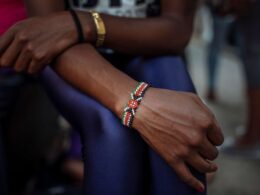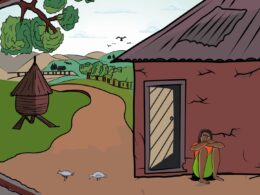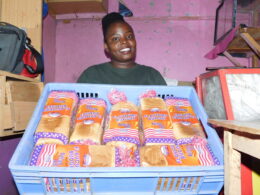Violence against women migrant domestic workers is a violation of human rights
and yet continues to occur in various forms fostered by structures such as Kafala.
02/12/2020
16 days of activism against Gender based violence is an annual international campaign that begins on the 25th November and ends on 10th December and is used by activists to call for the end of violence against women globally. This campaign not only seeks to highlight the violence that women face all year round but also the brave acts of resistance that women in different parts of the world have undertaken to resist violence and claim their rights and spaces for themselves. Violence against women is a violation of human rights and yet continues to occur in various forms; it is embedded in institutions and in everyday life. This blog piece in particular will focus on violence against migrant domestic workers (MDWs) in Lebanon.
In Lebanon today, there are over 250,000 MDWs predominantly coming from Philippines, Nepal, Sri Lanka, Ethiopia and Kenya. 96% of these workers are women. Many of them are pushed to participate in global care chains abroad by shrinking economies facilitated by neoliberal structural adjustment programs and trade liberalisation. In some countries like Kenya, the migration of women to take up domestic work abroad is encouraged as a way of boosting the economy through the remittances sent back home. However, for many of these women there’s very little reward in this work. Many are subjected to conditions of exploitation and abuse including long working hours with no breaks, physical and verbal abuse, withheld wages, confiscation of passports, physical confinement and limited communication.
Kafala is a framework that governs the entry, residence and work of migrant workers in Lebanon
The Kafala system has been cited as one of the biggest enabling factors for the abuse and exploitation of migrant domestic workers. The Kafala system in Lebanon is not a labour law but a framework that “governs the entry, residence and work of domestic migrant workers in Lebanon”. Otherwise known as the sponsorship system, this framework entails “a collection of laws, decrees, ministerial decisions, regulations and customary practices”. Included among these is the 1962 law regulating the entry of foreigners into Lebanon.
Article 6 of the 1962 Law stipulates that before entering the country, foreign nationals wishing to pursue work in Lebanon have to obtain an entry visa along with authorisation to work from the Ministry of Labour, which in turn requires sponsorship from the prospective employer. This means that domestic workers need permission from their employers for all matters during their stay in Lebanon including leaving the job or the country leaving them vulnerable to abuse. Limited freedom of movement is further exacerbated in cases where MDWs have had their passports confiscated by their employer, consequently preventing their escape from abusive situations.
A 2019 report by Amnesty revealed that many MDWs are usually locked in the house by their employer and sometimes have their food rationed during this time. Such conditions have resulted in MDWs jumping off balconies as a strategy for escape from their abusive employers, which often leads to fatal injuries or sometimes even death. In Lebanon, MDWs are also excluded from the Lebanese legal system under Article 7 of the Labour law, which means they are denied labour and social protections as other workers. By giving responsibilty to employers, the state positions domestic workers as simply sources of labour and fails to engage with them as embedded relational subjects of rights, ultimately relegating them to the private sphere where they are made invisible and silenced.
States assign their populace different regimes of governance following racial, gendered and class lines
As many have argued, the Kafala system undermines and contravenes Lebanon’s international obligations included in its ratification of the International Covenant on Civil and Political Rights, and the International Covenant on Economic, Social and Cultural Rights. Under the ICCPR, Article 7 prohibits torture and degrading treatment; Article 8 prohibits forced or compulsory labour; Article 10 prohibits arbitrary detention; and Article 22 guarantees freedom of association and the right to join a trade union. Similarly in ICESCR, Article 6 stresses the right to work that is freely chosen and accepted; Article 7 recognises the right of everyone to enjoy just and favourable working conditions including fair remuneration, safe and healthy working conditions, rest, leisure and reasonable limitation of working hours; Article 8 outlines the right to join and form a trade union of their choice. Right to decent working conditions and freedom from exploitation and discrimination are also stipulated in the core International Labour standards, 7 of which have been ratified by Lebanon.
The inability of the human rights framework to protect vulnerable migrant domestic workers reveals several limitations of a rights-based approach. One is the over-reliance on state institutions to enact these rights. State institutions remain a disciplinary practice that seek to regulate its population as understood in the citizenship regime. It’s under this regulation that states assign their populace 'different regimes of governance following racial, gendered and class lines’, consequently producing the migrant as an excessive subject. Secondly, within the human rights discourse this issue has been framed through a victimhood lens where MDWs are positioned as perpetually helpless and marginalised. This can prove limiting to the extent that it not only effacesthe individual and collective resistance efforts of MDWs but also relies on a gender essentialist framing that further obscures that experiences of MDWs are driven by a complex intersection of gender, ethnicity and class subordination.
These ‘ethnic’ churches become spaces of refuge, compassion, sanctuary and most importantly foster a community of MDWs where collective action can be facilitated
Resistance and Collective Action
Using the lens of spatial discipline, Pande reveals how MDWs are disciplined by spatial structures – from delineation of appropriate spaces in the employer’s house to racist restriction and surveillance in public spaces. However, she contends that MDWs do not accept this passively and are able to reclaim these very spaces for resistance and freedom. Pande highlights how balconies have become a space of resistance for restricted live-in MDWs, where they are able to escape their employer’s surveillance and also forge alliances with other nearby MDWs. For those with less restrictive employers, their time off on Sunday to attend church services becomes a way to reclaim their freedom. These ‘ethnic’ churches become spaces of refuge, compassion, sanctuary and most importantly foster a community of MDWs where collective action can be facilitated.
In these churches, MDWs can learn about their rights and seek advice on their grievances and ways of negotiating with their employers. In the absence of recognised trade unions, churches transform into a powerful network for MDWs that provide sanctuary to MDWs escaping abuse through providing a multitude of resources. Some MDWs are sometimes able to run away from their employers and operate as irregular freelancers. The MDWs usually live in shared rented apartments that, like church networks, can serve as an avenue to meet other MDWs, organise material and legal support for each other and as refuge spaces from abusive employers. Crucially, these communal spaces are a site of politicisation for MDWs, ultimately providing grounds for the emergence of new political subjects/activists organising to change their position.
Activist MDWs go on to engage in advocacy work across ethnic communities and collaborate with NGOs to demand changes in national and international laws. For example, as a result of community organizing by MDWs, a group of activists were able to establish the first Domestic workers Union in 2015. Despite Lebanon’s refusal of its recognition, this was a symbolic illustration of how individual and communal acts of resistance can be transformed into powerful political actions for those whose human rights are denied. Similarly, when a group of Kenyan Migrant domestic workers organized a protest outside the Kenyan consulate in Beirut following the devastating explosion and effects of the COVID-19 pandemic, it was a powerful illustration of the power of collective action. Their voices were heard and consequently the conversation around the plight of Migrant Domestic Workers in Lebanon was resparked.
More stories


